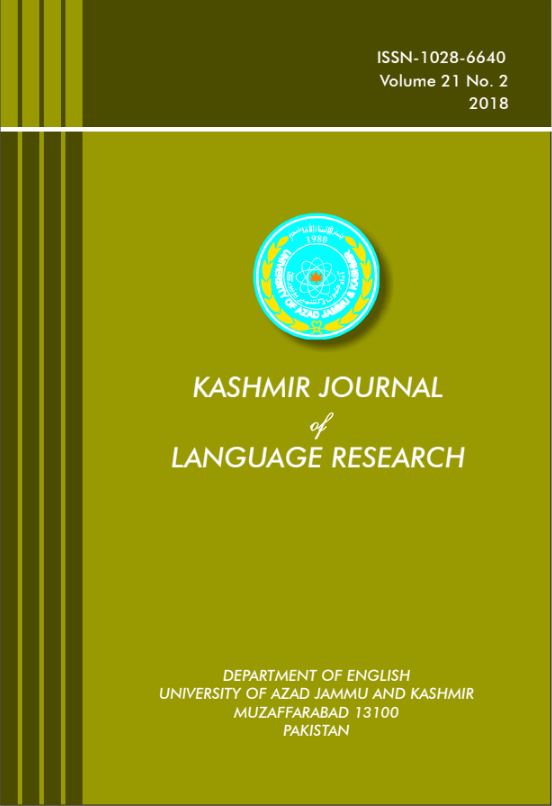On the Necessity of Reappraising 'Close Reading'
Keywords:
Close reading, New Critics, New Criticism, Qualitative Research, Historical AnalysisAbstract
This paper attempts to focus on the necessity of re-appraising the 'close reading' to investigate the literary texts. The study, being qualitative in nature, uses historical analysis as a methodology for understanding as to why it is essential to re-vise 'close reading'. It argues that, historically, the method during its heyday was confined to the study of the text sans context; had an instructional, reformatory, disciplinary and programmatic appeal with the impression as if its pioneers were the only elected, intellectual and moral elites to comment on the texts. The study further shows that 'close reading' amassed severe criticism for being designed for fulfilling institutional demands so it was dismissed for being narrow, routinized and closed instead of being close. It was even labeled as theological. Importantly, the study indicates that the history and critique of 'close reading' paves a way for the reappraisal of the methodology on the grounds that the closeness of readings could not be confined and controlled because readers and thoughts are diverse. Besides, the richness of reality and knowledge make theoretical concepts appear as narrow and poor and most of all knowledge is not simply a matter of cognition but recognition too. The findings of this research thus ask for revisiting 'close reading' because the original meaning and essence of the word 'close' cannot be closed on the ground that it has been declared as 'closed.'

Downloads
Published
Issue
Section
License
Copyright (c) 2021 Kashmir Journal of Language Research

This work is licensed under a Creative Commons Attribution 4.0 International License.




